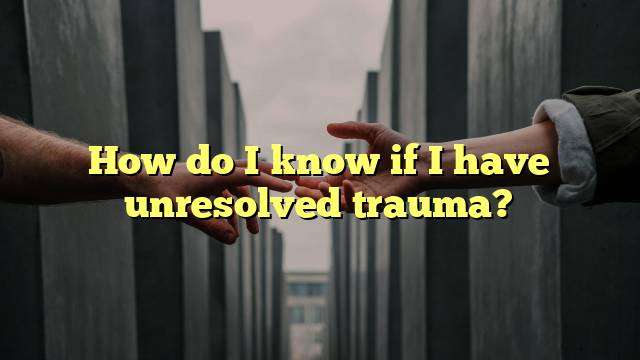What is Unresolved Trauma?
Unresolved trauma is a term used to describe a trauma that has not been adequately processed or addressed. Trauma is typically defined as a psychological, emotional, and physical reaction to a life-threatening or overwhelming experience. It is important to understand that trauma can occur after one single event, or it can be the result of prolonged exposure to an abusive, violent, or threatening environment.
How Do I Know if I Have Unresolved Trauma?
The symptoms of unresolved trauma may vary from person to person, but there are certain common signs and symptoms that can help you determine if you are suffering from unresolved trauma. These may include:
- Addictive behaviors such as substance abuse, gambling, or other compulsive activities
- An inability to deal with conflict in personal or professional relationships
- Anxiety and fear of being in certain situations
- Confusion or difficulty making decisions
- Depression or feeling of hopelessness
- An innate belief that one has no value or is undeserving of love and respect
If you recognize any of these symptoms in yourself, it may be a sign that you are suffering from unresolved trauma.
How Can I Resolve Unresolved Trauma?
The first step in resolving unresolved trauma is to recognize that it is present. It is important to understand that unresolved trauma is not your fault and that it is not something to be ashamed of. Once you have acknowledged that you are suffering from unresolved trauma, it is important to seek help from a qualified therapist or counselor.
A therapist or counselor can help you process the trauma and develop coping strategies to help you manage the symptoms. Treatment for unresolved trauma may include talk therapy, cognitive-behavioral therapy, eye movement desensitization and reprocessing (EMDR), or other forms of psychotherapy.
It is also important to take steps to take care of yourself while you are working to resolve your unresolved trauma. This may include engaging in activities that bring you joy, such as spending time with friends and family, exercising, or participating in a hobby.
Conclusion
Unresolved trauma is a very real experience and it is important to take steps to resolve it. If you are experiencing any of the symptoms of unresolved trauma, it is important to seek help from a qualified therapist or counselor. With the right tools and support, it is possible to resolve the trauma and move forward with your life.



